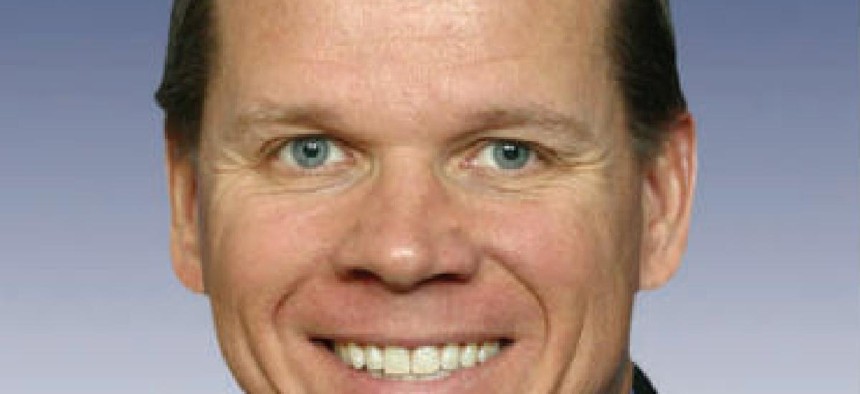House Small Business chairman skeptical of GSA's new schedules model

Demand Based Model "demonstrates a lack of understanding of how small businesses operate," Rep. Graves suggests.

Demand Based Model"demonstrates a lack of understanding of how small businesses operate," Rep. Sam Graves, R-Mo., suggests.
A senior House member is questioning the General Services Administration's potential Multiple Award Schedule restructuring that cuts unused schedule contracts, saying the reform will have a negative effect on small companies.
In a Nov. 29 letter to GSA Acting Administrator Dan Tangherlini, Rep. Sam Graves (R-Mo.), chairman of the House Small Business Committee, wrote that GSA's Demand Based Model (DBM) of the schedules program will not help the agency operate more efficiently or save money. It also will not help small businesses' viability in the federal marketplace, Graves argued. He even questioned whether GSA recognizes how small companies function in government contracting.
"The DBM proposal demonstrates a lack of understanding of how small businesses operate in relation to the federal market," Graves wrote wrote. He added that the "wildly divergent estimates of cost savings" GSA gave his committee in recent months have left him skeptical "that GSA understands its own cost model or that any cost savings will offset the harm to small businesses and the procurement system that will result from denying small businesses the opportunity to compete for federal contracts."
Over the last several years, the number of companies seeking schedules contracts has roughly doubled and many of the schedule contract holders are small businesses. Nearly 15,700 of the 19,000 contract holders are small business, Graves wrote. In addition, the volume of contract modifications has roughly tripled.
GSA officials would not comment on the specifics of the congressman's critique, but the agency "is reviewing Chairman Sam Graves's letter and appreciates his concerns," a GSA spokeswoman said Nov. 29.
"GSA remains deeply committed to small businesses, and we value the savings and efficiencies they offer the federal government," she said. "As a testament to our commitment the Small Business Administration recently recognized GSA for the agency's leadership in small business contracting." In fiscal 2012, GSA received an A+ for exceeding SBA small business contracting goals.
"We will continue to work with Congress to meet these important goals," the spokeswoman added.
GSA has proposed the DBM as it aligns agency's resources with areas of greatest need. Officials can direct attention to those areas where customer demand is increasing. On the other hand, they can pull away resources from areas where customer demand has fallen off.
Some of the growth is from new services and products, but too much of it is not, in the agency's view. GSA expects that more than half of contracts awarded in 2011 will not have significant sales.
Steve Kempf, former commissioner of GSA's Federal Acquisition Service, told Graves' committee in June the program is offering too much, including some unnecessary products and services, such as typewriters.
In comments regarding GSA's DBM proposal, Graves wrote it ignores the basic principle of the Federal Acquisition Regulation, which promotes open and fair competition, by choosing to not allow qualified companies to compete for work.
Nevertheless, GSA officials recognize DBM's limitations as a remedy.
"It's not a silver bullet," Houston Taylor, associate FAS commissioner of the Office of Acquisition Management, said earlier this year at the Multiple Award Government and Industry Conference in Arlington, Va. "It won't fix everything, but it will allow us to start focusing and concentrating on the customer."
Note: This story was updated to include GSA comments that were not available at the original deadline.
NEXT STORY: Experts applaud DOD Better Buying plan


